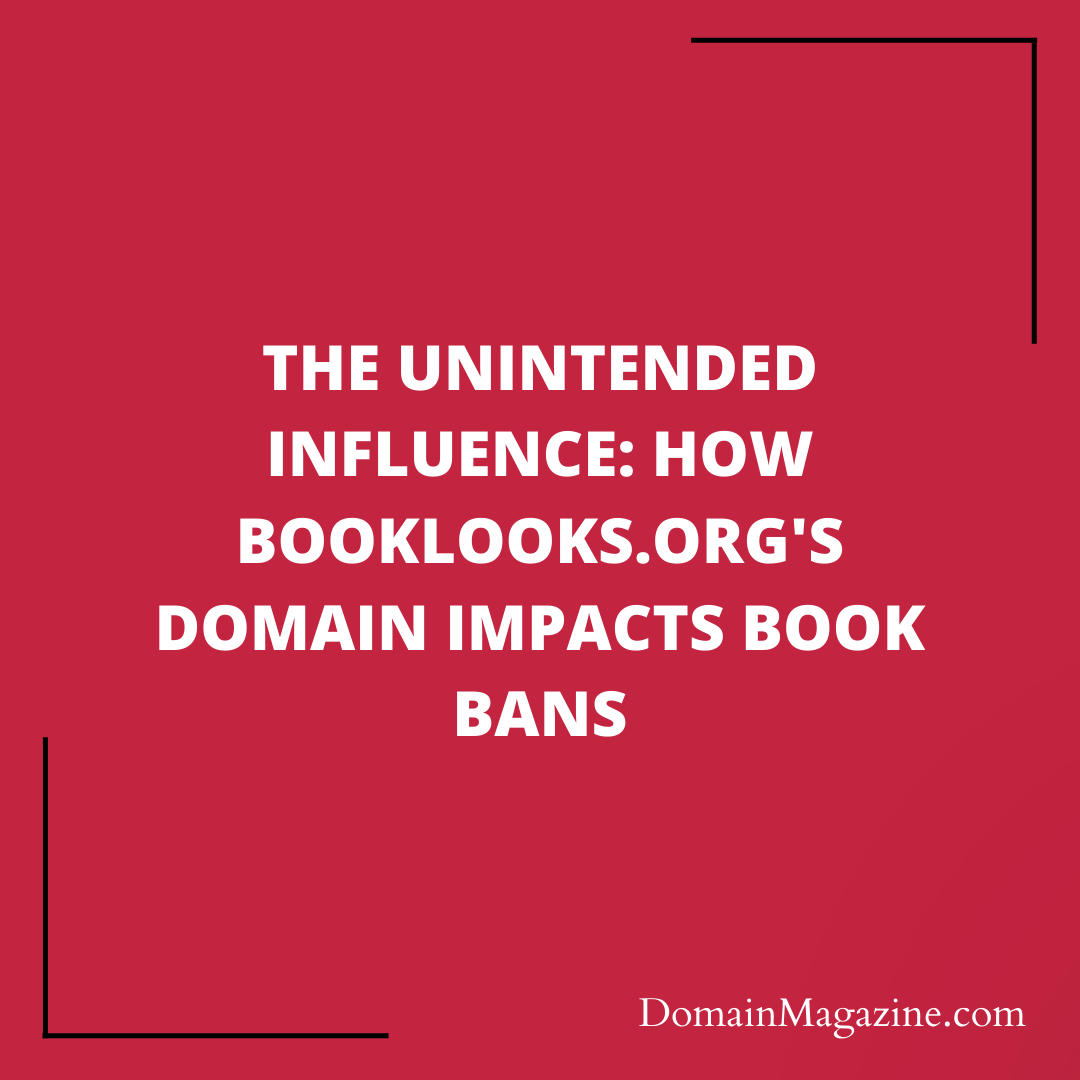Not all domain names lead to destinations that promote the free exchange of ideas. Today, we delve into the intriguing and controversial world of BookLooks.org, a domain that has unexpectedly found itself at the center of book-banning efforts across the United States.

The Birth of BookLooks.org
In March 2022, a seemingly unassuming website was born: BookLooks.org. Run by Emily and Jonathan Maikisch, a couple from West Melbourne, Florida, the website aimed to be a resource for parents seeking information about the books their children might read. At first glance, it seemed innocuous, with a mission statement that claimed to support parental involvement in their children’s literary choices.
The Controversial Twist
However, it didn’t take long for BookLooks.org to gain notoriety. The website introduced a book-rating system, designed to help parents quickly assess a book’s content. The ratings ranged from zero (suitable for everyone) to five (aberrant content), focusing primarily on criteria like profanity, nudity, sexual content, and references to sexuality or gender identity.
A Catalyst for Book Banning
What started as a well-intentioned resource for parents quickly took a controversial turn. BookLooks.org reviews, which some argue lack transparency in terms of who conducts them and what qualifications they hold, began to serve as ammunition in book-banning campaigns across the United States. The controversial twist was that these efforts often targeted books related to LGBTQ issues and racial diversity, raising concerns about censorship and intellectual freedom.
A Web of Connections
Perhaps the most intriguing aspect of this domain name’s role in book banning is its possible connection to Moms for Liberty, an activist group known for similar book-rating systems. While Emily Maikisch claims to have distanced herself from Moms for Liberty, evidence suggests a potential link, raising questions about the origins and motivations behind BookLooks.org.
Expert Opinions
Librarians and experts in the field of literature have expressed their concerns. They argue that BookLooks-style rating systems are not aligned with how professional librarians assess books for libraries. Instead of applying subjective moral guidelines, librarians consider factors such as a book’s content, target audience, and literary value.
The Broader Debate
The rise of book-banning efforts, with domain names like BookLooks.org at their core, reflects a broader debate in American society. It’s a debate about intellectual freedom, diversity in literature, and the role of parents and communities in shaping educational content.
Conclusion
In the digital age, domain names have taken on new roles, from being mere web addresses to becoming symbols of controversy and debate. BookLooks.org is a prime example of how a seemingly innocuous domain name can be at the center of a contentious issue. As the debate over book banning, censorship, and intellectual freedom continues to evolve, the role of domain names in shaping these discussions is undeniable. They are, after all, the digital addresses that lead us to the heart of these online debates.


Join the Discussion